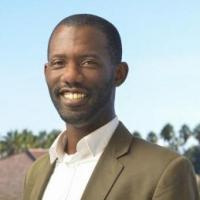SystemX Affiliates: login to view related content.

*To receive email announcements and live stream information for upcoming seminars, please subscribe to the SystemX Seminar/EE310 Mailing list here.
Water contamination can harm human health and alter aquatic ecosystems. Current treatment only addresses collected wastewater, although most pollution occurs from uncollected water (e.g., agricultural runoff). Water quality is typically monitored at treatment plants with time-intensive, costly, analytical laboratory techniques that limit monitoring frequency and spatiotemporal resolution; exhibit dangerous lag times between sampling and measurement; and constrain monitoring to treatment plants. Presently, real-time water monitoring is restricted to indirect measures of pollution (e.g., pH, dissolved oxygen); we design modular sensors that directly measure pollutants such as ammonium, which contributes to harmful algal blooms. Our first step toward that vision is designing selective, durable, deployable ammonia sensors that achieve laboratory method detection (1 mg/L) at field sensor prices (<$30) and breakthrough selectivity (>99%).
Dr. William Tarpeh is an assistant professor of chemical engineering at Stanford University. The Tarpeh Lab develops and evaluates selective separations in “waste” waters at several synergistic scales: molecular mechanisms of chemical transport and transformation; novel unit processes that increase resource efficiency; and systems-level assessments that identify optimization opportunities. Will completed his B.S. in chemical engineering at Stanford, his M.S. and Ph.D. in environmental engineering at UC Berkeley, and postdoctoral training at the University of Michigan in environmental engineering. Will has recently been honored as an Environmental Science & Technology Early Career Scientist, Forbes' "30 Under 30" 2019 Science List, Gulf Research Program Early Career Fellowship, and Chemical and Engineering News Talented 12.


